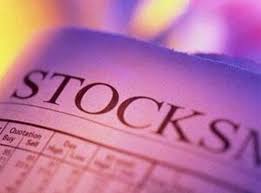6 Growth Stocks That Will Outlast a Bear Market

Beating 98% of Large Cap FundsBy doing just that, the Baron Fifth Avenue Growth Fund (BFTHX) is up over 25% so far in 2017, outperforming not only its benchmark, the Russell 1000 Growth Index, but also 98% of large cap growth funds, according to data from Morningstar Inc. cited by Barron’s. Fund manager Alex Umansky employs a mix of growth and value investing techniques, and seeks companies that are likely to “dominate their industries in the digital revolution,” as Barron’s puts it. Umansky’s six favorite stocks right now are: online merchant Amazon.com Inc. (AMZN), social networking leader Facebook Inc. (FB), Chinese online merchant Alibaba Group Holding Ltd. (BABA), Chinese travel booking service Ctrip.com International Ltd. (CTRP), biotech firm Regeneron Pharmaceuticals Inc. (REGN) and genetic research company Illumina Inc. (ILMN). Umansky recently added cutting-edge electric car maker Tesla Inc. (TSLA) to his portfolio, Barron’s adds.
Riding the Digital Wave
Umansky says that his largest holdings are “muti-year growth stocks” such as Amazon.com, Facebook and Alibaba, according to Barron’s. Facebook, he notes, benefits from the movement of advertising budgets toward the Internet. Leading online sellers of broad categories of merchandise, such as Amazon.com and Alibaba, meanwhile, are gaining from consumers’ increased desire for shopping convenience. (For more, see also: Why Investors in Retailers May Bleed Even More.)
Amazon.com also “has a tremendous lead” in cloud computing technology, a multi-trillion-dollar business that represents a “multiyear paradigm shift in computing,” Umansky tells Barron’s. In its original business, online retailing, Amazon.com captures a stunning 60 cents from each incremental dollar spent on e-commerce in the U.S., Umansky says.
Similarly, Alibaba is the leading cloud services provider in China, Umansky says. It also is building a one-stop-shopping financial services company and has an online payment service with 450 million users, he adds.
Alibaba often is described as China’s Amazon.com, and Ctrip.com is its version of The Priceline Group Inc. (PCLN), Umansky tells Barron’s. As China becomes more prosperous, its growing middle class is bound to spend yet more on travel and tourism spending. The Chinese already lead the world in spending over $ 170 billion annually on travel abroad, according to Umansky.
Digitizing Medicine
There are now about 230,000 ongoing clinical trials for drugs in the U.S., up from about 30,000 a decade ago, Umansky tells Barron’s. Meanwhile, using DNA sequencing to select candidates for these clinical trials increases their probabilities of success “exponentially,” Umansky adds. About 60% of the gene-sequencing equipment used worldwide is manufactured by Illumina, and this equipment is used in roughly 90% of the gene-sequencing tests performed across the globe, he says. Illumina’s market value is now over ten times what it was five and half years ago, and Umansky expects another ten-fold increase during the next five to ten years.
Digitization is shortening the innovation cycle in biotechnology, Umansky observes. Regeron is his top pick in this area, and he notes that the stock has roughly doubled in price since he purchased it in 2014.
Umansky’s Method
As mentioned, Umansky looks for stocks trading at least 20% below their intrinsic value, Barron’s says. For a more detailed discussion of his philosophy, see his first quarter 2017 letter to shareholders. Per this document, a company’s growth rate is one of the variables that his team uses in computing intrinsic value.
Umansky believes that long-term investors have increasing opportunities to profit as the markets become more focused on the short term, per Barron’s. Accordingly, he holds stocks for an average of seven years, and has an annual portfolio turnover rate of only 16%. He also tells Barron’s that he does not try to predict the market, Federal Reserve actions or election results. Instead, he looks for “the most competitively advantaged companies” for the long run, as he was quoted by Barron’s. While Tesla does not fit his value criteria, Umansky bought it based on unique competitive advantages coming out of its technology.

